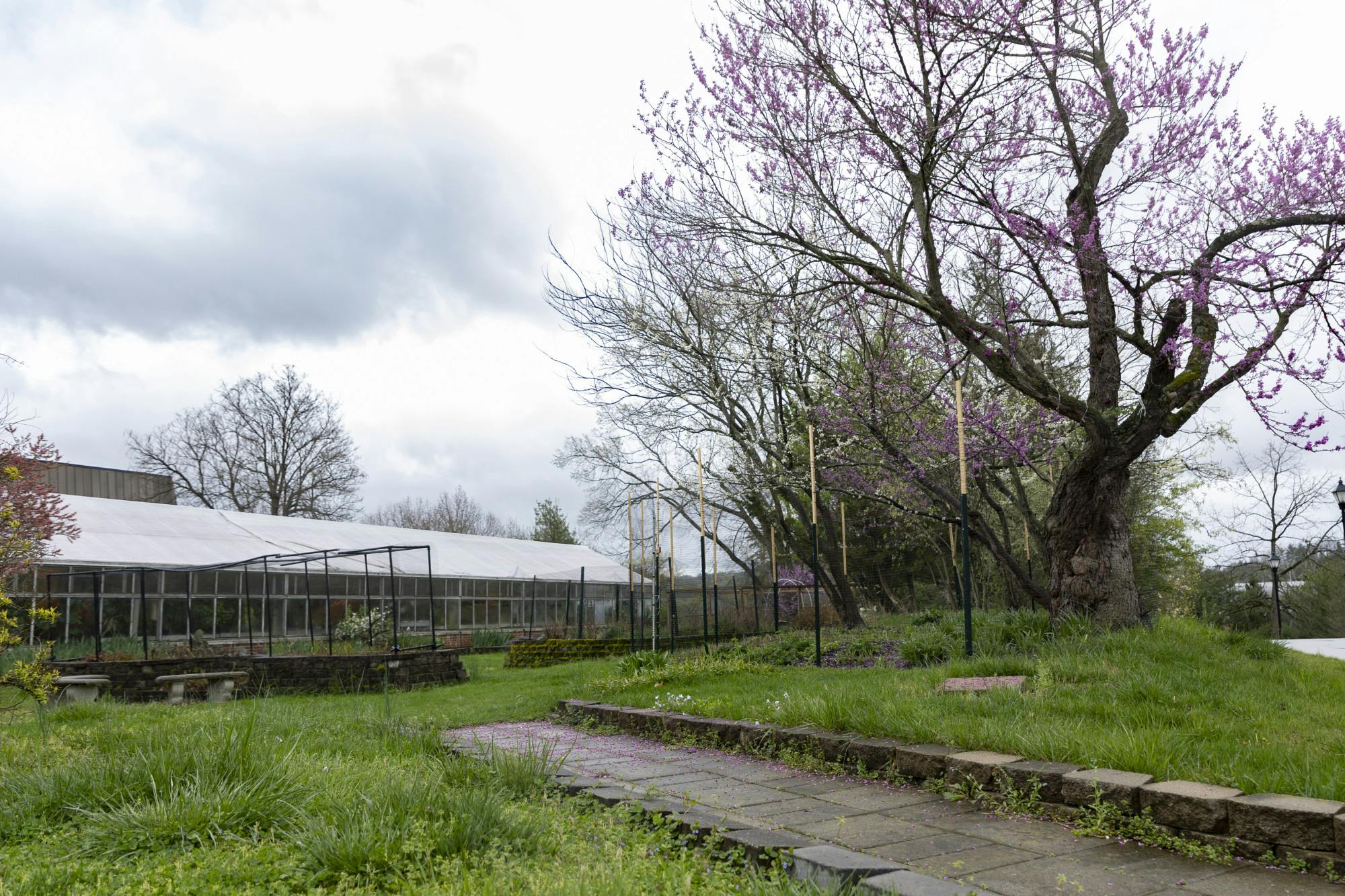April is National Garden Month, a time to celebrate the beauty and benefits that grow from gardens. In Athens, gardens foster a sense of community and sustainability one soil-covered seed at a time.
Susie Huser, the director of outreach at Community Food Initiatives, said the non-profit manages a total of four community gardens within Athens County.
The Community Food Initiatives, or CFI, community garden spaces include the Athens Eastside Community Garden, the Athens Southside Community Garden, a garden at Hope Apartments and a new garden at the Athens Appalachian Center for Economic Networks.
Huser said the gardens are split up into small plots. Each plot is managed by individual community members. CFI provides tools, water and guidance, but the rest is up to the gardeners.

“(Community gardens) are part of our mission to foster communities where everyone has access to healthy food in that they provide space and resources for people to grow their own food,” Huser said.
By creating a shared space, the gardens cultivate opportunities to build relationships.
“I'm talking about relationships with each other, with other humans, but also relationships with the Earth and with the food that we eat,” Huser said.
Community garden participants find themselves learning from each other and sharing fruits and vegetables grown in the gardens. Gardeners also actively participate in sustainable practices such as supporting pollinators and reducing grocery store purchases that were produced and shipped unsustainably.
In addition to community gardens, CFI also helps to manage and support school garden programs. Sprouts Garden Program is fostered by CFI and is designed for a first-grade audience.
Molly Gassaway, the director of garden education at CFI, said school gardens offer students an opportunity to gain hands-on experiences in gardening.
“Everything is outdoor based: environmental education and promoting nutrition and healthy lifestyles and empowering our youngest gardeners to learn how to grow their own food,” Gassaway said.
Much like community gardens, school gardens offer a range of advantages.
“The first thing that comes to mind is providing kids with an opportunity to learn to love gardening,” Gassaway said.
Children can take part in gardening activities while learning healthy habits, increasing nutritional awareness and trying foods they grew first-hand.
“They are a lot more willing to try it and decide they like it when they actually are invested in its growth,” Gassaway said. “They started it from seed. They watered it. They cared for this plant, now they get to eat it.”
Other benefits include environmental education opportunities, physical activity and garden therapy. By starting gardening at a young age, healthy lifestyles are shared throughout communities.

“The education is really our way of starting with the youngest community members and kind of getting them on that right track while they're still little,” Gassaway said. “They take that enthusiasm home.”
In addition to community efforts to promote gardening, Ohio University also has numerous green spaces which highlight what it means to foster growth. One such space is the greenhouse, formally known as the Botanical Research building, which houses a variety of plants, including a sensory garden, according to a previous Post report.
The greenhouse offers a number of educational opportunities as well, but it is not OU’s only green space meant for learning. Another of these spaces is the Schoonover Center Green Roof Project.
Kim Thompson, a biology professor and a member of the committee that manages the green roof, said the roof is multifaceted.
It fosters sustainability by reducing heat, pollutants and stormwater, while also providing habitats for a diverse range of organisms. The goal of the green roof is to mimic a native prairie ecosystem, making it low-maintenance.
In addition to the eco-friendly advantages of a green roof, the garden on top of Schoonover Center has created endless educational opportunities for students. Student researchers have looked at the green roof’s plant diversity, energy flow, water microbiome and even an analysis of arthropods through a collection of spiders and insects.
“We've actually had a lot of educational potential realized from this rooftop,” Thompson said. “I think it'd be great if the university did consider doing more green roofs and then making it part of our educational structure.”
Community gardens, school gardens and the Schoonover green roof cultivate unity through greenery.
“They really do bring people together,” Thompson said.
As residents, students and faculty members alike roll up their sleeves this April, they will be sure to find the benefits of education, sustainability and compassion within the rich soil of Athens’ gardens.





